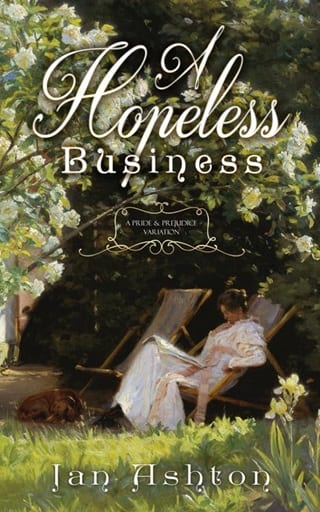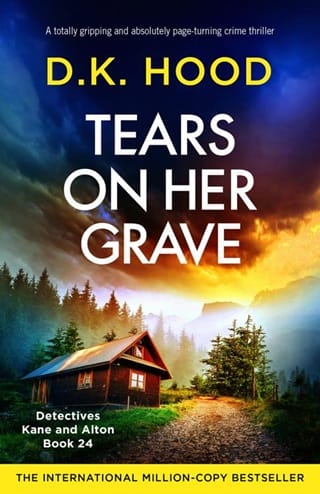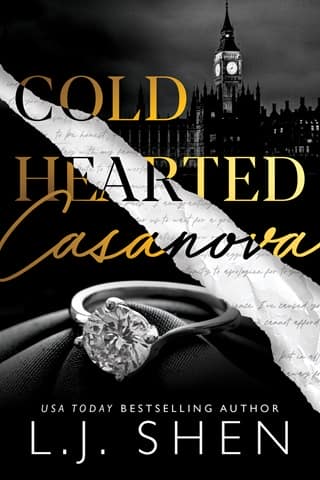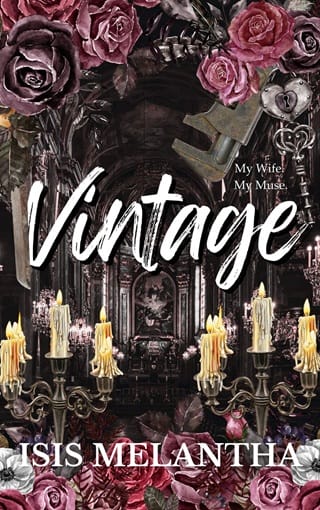Epilogue
A year later, returned to Longbourn for the first time since her marriage, Elizabeth Darcy needed little reminder that no matter how quickly the changes she felt in her own life, the pattern of life in Meryton would remain steady and slow.
Priscilla Lewis had found a husband. Mr Goulding was now a father, and Mr Lucas soon to become one. Of course, so would Darcy; the anticipation of it happening in only four months' time had her staid husband, already displeased to undertake the four-day journey from Pemberley to Hertfordshire ‘even for your sister's wedding'—even more protective of her health, happiness, and sensibilities. His insistence on her need for tranquillity thus made it easy to decide to stay at Netherfield with the Bingleys rather than at Longbourn while Mrs Bennet busied herself with Mary's wedding to Mr Smith, the new vicar in Luton.
On their second evening in Meryton, reluctantly separated by well-wishers at Lucas Lodge, she watched from a few feet away as Darcy was approached by the youngest Lucases. Peter now had all his teeth and Edward was nearly half a foot taller than at their last meeting.
"Mr Darcy."
He turned and looked down at the boys, both of whom favoured their mother's winsome looks, but still had hints of their eldest sister's plainness. The older one's limbs were in that gangly stage as he moved awkwardly from boy to man. Darcy thought he might advise him on the ways he could alleviate the clumsiness certain to plague him in the next years.
"Mr Darcy," said Peter, "you still love Miss Elizabeth?"
"I do, very much," he replied solemnly. He was impressed; Mr Bennet had never asked that question. "Mrs Darcy is the ideal wife for me."
"She is, for everyone," the younger boy said glumly. "Must you keep her for yourself, away from those of us who need her?"
Darcy bit his lip, trying not to smile. "Mrs Darcy will always return to Longbourn, but her home is now with me."
"Well, you see, we would like her back here, in Meryton," said Edward. "Our brother John was once to marry her and make her our sister, but then he went away to school."
Peter eagerly added, "And he married dull old Susan, who never plays with us and talks only of London and dresses and hates pigs and dogs."
"She is a stupid girl to dislike dogs," Edward whispered loudly, "and Charlotte's ridiculous husband agrees with her!"
"I am sorry for you, to have gained a sister and brother with such a terrible prejudice," Darcy said gravely. "But they must have other traits you can admire."
Edward shook his head. "You married the best of all the ladies in Meryton."
Darcy could do nothing but offer his agreement to such a discerning young man. "Like your elder brother, you must attend school. You will meet another lady when you are older."
Edward looked longingly at Elizabeth, across the room laughing with some other young ladies. "I suppose."
Darcy crouched down in front of the boys. "I promise to always make her happy and bring her back to Meryton to visit. Perhaps we shall come to your weddings someday, when you are men with whiskers and educations and careers."
Peter's nose wrinkled with distaste but his older brother said resolutely, "I will dance with Miss Elizabeth."
"You will dance with Mrs Darcy ," he replied. "As to your own futures, I can only advise you to never pepper a lady with too many proposals—make sure of her affection and whether you are worthy of her before you ask."
"And whether she likes cake?" said Peter.
The younger boy's earnest question earned Darcy's smile. "Oh, I would not marry a woman who did not like cake."
Edward nodded his head. "Miss Eliz—Mrs Darcy likes cake and is not scared of toads and can skip stones and"—he lowered his voice—"she was clever enough to refuse Mr Collins. He talks an awful lot, and always takes the largest slice of cake."
While Kitty and Lydia had grown more sensible, and Darcy could take some pleasure in their conversation, he was as surprised as Elizabeth when her youngest sisters followed them out of Longbourn the day before the wedding and asked to sit with them in the gardens. Both supposed the girls shared their weariness of the solemnity of Mr Smith and Mary's courtship. After all, they had been rather vocal about the lack of a ball.
Lydia sighed heavily and got quickly to the point. "You and Jane and Mary have chosen such different husbands, and not to insult you, Mr Darcy, but Lizzy had her choice of husbands and likely heard every kind of proposal."
Elizabeth's attempt at solemnity failed as she laughingly replied, "Until Mr Darcy, the most acceptable offer I had received came from a suitor who was twelve years old."
Lydia rolled her eyes but was too earnest to laugh. "It is obvious when a man is a terrible prospect—he drools or is fat or poor or cannot understand Casino. But if Papa's judgment was so clouded for you, how will Kitty and I know a man is all he seems, not simply handsome or good in offering pretty words?"
Elizabeth squeezed her husband's arm. "A man who feels deeply and yet who cannot summon pretty words easily is the best sort of man."
Kitty's face lit up as she strove to understand. "So a man who is glib and charming cannot feel deeply? Are Lieutenant Wickham and Mr Nugent shallow in their professions of love in spite of being handsome?"
"Yes." Darcy's quick reply, rather loud and decisive, startled all three women. "Yes," he said again, albeit more calmly. "You can enjoy flattery but trust is something different."
Kitty nodded. "Then I was correct in never walking alone with Mr Nugent, and Lydia was correct not to meet Mr Wickham at the boat-house."
"At the boat-house?" Elizabeth did not need to look at her husband to know his thoughts.
Lydia shrugged. "Once word got out of it affording privacy and a romantic atmosphere that led to the only proposal you have accepted, well, yes, the boat-house has gained some renown."
The Darcys glanced at each other, mortified. "I shall speak to Mr Bennet about replacing the lock on the door," he said.
"You will spoil everyone's fun," cried Lydia.
"And yet safeguard your reputations," Darcy replied smugly.
Before Lydia could protest further, Elizabeth held up her hand. "Both of you are pretty girls, who easily catch a man's eye. When I thought of the husband I wished for, it was for a man who was good, kind-hearted and intelligent, one who I could laugh with, someone I could talk to all day long, and never tire of—and who would never tire of me. A handsome face cannot be the only inducement for affection."
She gave her husband a fond look before continuing. "Twice in our acquaintance, Darcy said he would do all he could to protect my reputation. His promise, to care for me even if I did not need his help or wish him as a husband, affected me more than any sweet flattery could have. It showed me that he is the best kind of man, willing to put aside his own wants for mine. Is there any greater way to love someone than to put their good over your own?"
Kitty appeared awed. "An unselfish love."
Lydia appeared more doubtful, and looked between the couple, no doubt seeing Darcy's desperate desire to kiss his wife. "Come, Kitty. We have had our lesson for the day. Perhaps we should talk to Mary and make certain she understands about kissing."
The girls had scarcely disappeared around the hedge when Darcy pulled Elizabeth into his arms and kissed her soundly. "You are my heart's delight, a wonderful sister, and a sound giver of advice." He kissed her again.
"I meant every word, my love, but did you mean your promise to have the boat-house locked?" She arched an eyebrow. "Think of the romantic beginnings that will not flower there."
He shrugged. "It is where our beginnings took root."
"Ah, and Fitzwilliam Darcy does not like to share."
"Not when it comes to you."
"I saw those glum expressions on Edward and Peter Lucas. You scared them off, too. "
"Minx." He kissed her nose.
Elizabeth laughed. "It is an unselfish love that tolerates all my teasing, argumentative ways."
"A man can find an argumentative wife readily enough, but to find a woman he can respect and admire, and who challenges him to be a better man?" He shrugged and gave her a small smile. "That, it seemed to me, was a hopeless business—until you."
The End
 Fullepub
Fullepub 



